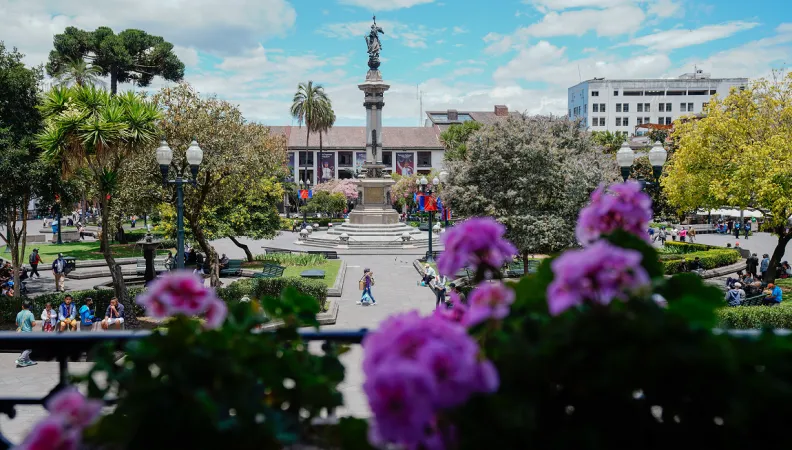Share the page
ENSLAC Project – Enabling Nature-based solutions Scale-up in Latin American Cities

-
Project start date
-
2022Status
Ongoing
-
Project end date
-
2024
-
AFD financing amount
-
225 000
-
Partners
-
Research program
As part of the ENSLAC project, AFD is working with Yes Innovation and its partners to study and identify replicability levers for nature-based solutions in three South American countries – Ecuador, Colombia and Peru. Fifteen initiatives are analyzed in order to understand how natural ecosystems are mobilized in urban areas, what are their impacts and how nature-based solutions (NBS) could be more widely integrated into spatial and urban planning.
Context
Latin America is the second most urbanized region in the world, with 81% of its population concentrated there. This strong urbanization, its rapid growth and the weakness of urban planning policies affect areas of high ecological and environmental value. However, natural ecosystems can be a source of solutions for those involved in urban design and development, in particular to respond to the risks generated or exacerbated by climate change.
Understanding nature-based solutions (NBS), studying their implementation conditions and analyzing their integration into public policies is therefore necessary to ensure the livability of cities in the long term. While NBS and green infrastructure are still recent in the urban landscape, initiatives have been deployed for several years and are a privileged source of data to exploit.
This project is part of the ECOPRONAT research programme, which supports research on how to better take into account biodiversity and mainstream it into key economic sectors.
Objectives
The ENSLAC (Enabling Nature based solutions Scale-up in Latin American Cities) project aims to analyse the mechanisms that enable the scale-up of nature-based solutions implementation in Latin American cities, drawing on 15 case studies in Peru, Colombia and Ecuador. This research approach aims to:
- Analyze the challenges of ecological restoration for the management of risks related to the impacts of climate change in urban areas;
- Understand the levers for using NBS as a tool for urban planning and development;
- Identify the temporal, technical, cultural, political, social, financial and cooperative processes that have enabled large-scale NBS-based projects;
- Assess the influence of national or supranational strategies and policies on NBS development;
- Disseminate the knowledge produced by focusing on formats and channels that can be used for the training of urban development actors.
To explore these issues, Yes Innovation, based in Quito, works with the Humboldt Institute for Biological Resources Research, an institution linked to the Ministry of the Environment of Colombia, and Periferia Territorios Vivos, a Peruvian organization specialized in urban planning with an ecological approach.
Method
This research project uses two analytical tools (depending on the case study and the available field data):
- Temporal and spatial analysis (known as BA/CI, which refers to a Before/After and Conservation/Intervention analysis);
- Comparative analysis between case studies on NBS and reference cases of comparable characteristics but without implementation of NBS.
Results
The ENSLAC research project aims to:
- Understand mechanisms that enable scale-up of nature-based solutions as a tool for urban and peri-urban planning;
- Identify replicability levers of these NBS for Latin American cities;
- Produce training materials for urban development actors.
The research team presented its findings during a webinar from the Research Conversations series. The replay is available below (in French and Spanish).
Contact
-
Julien CALAS
Research Officer on Biodiversity



